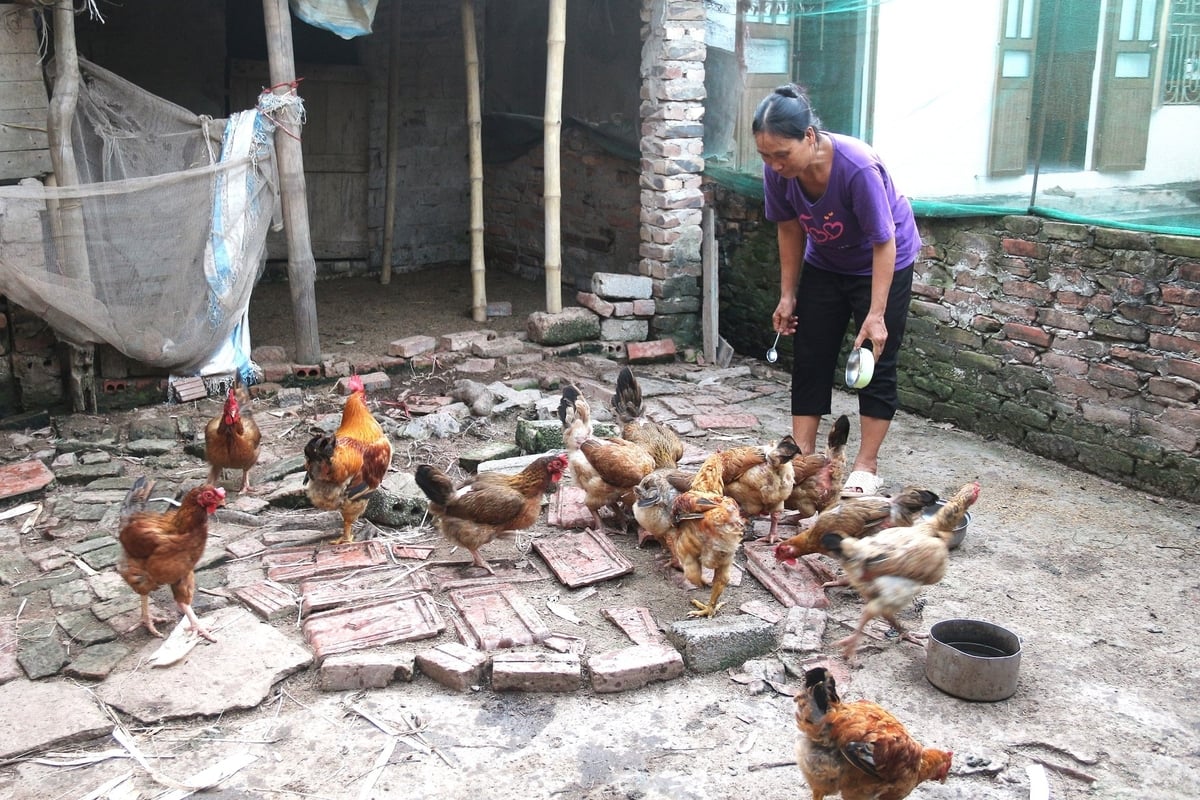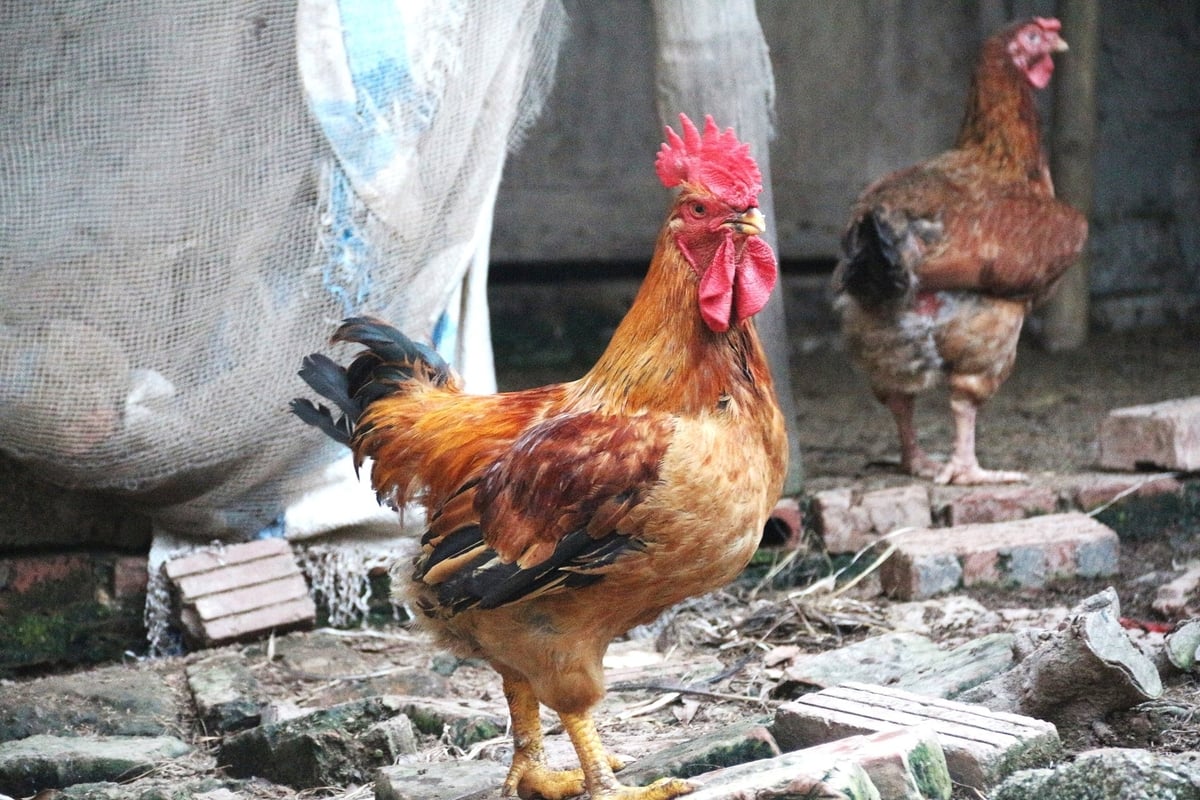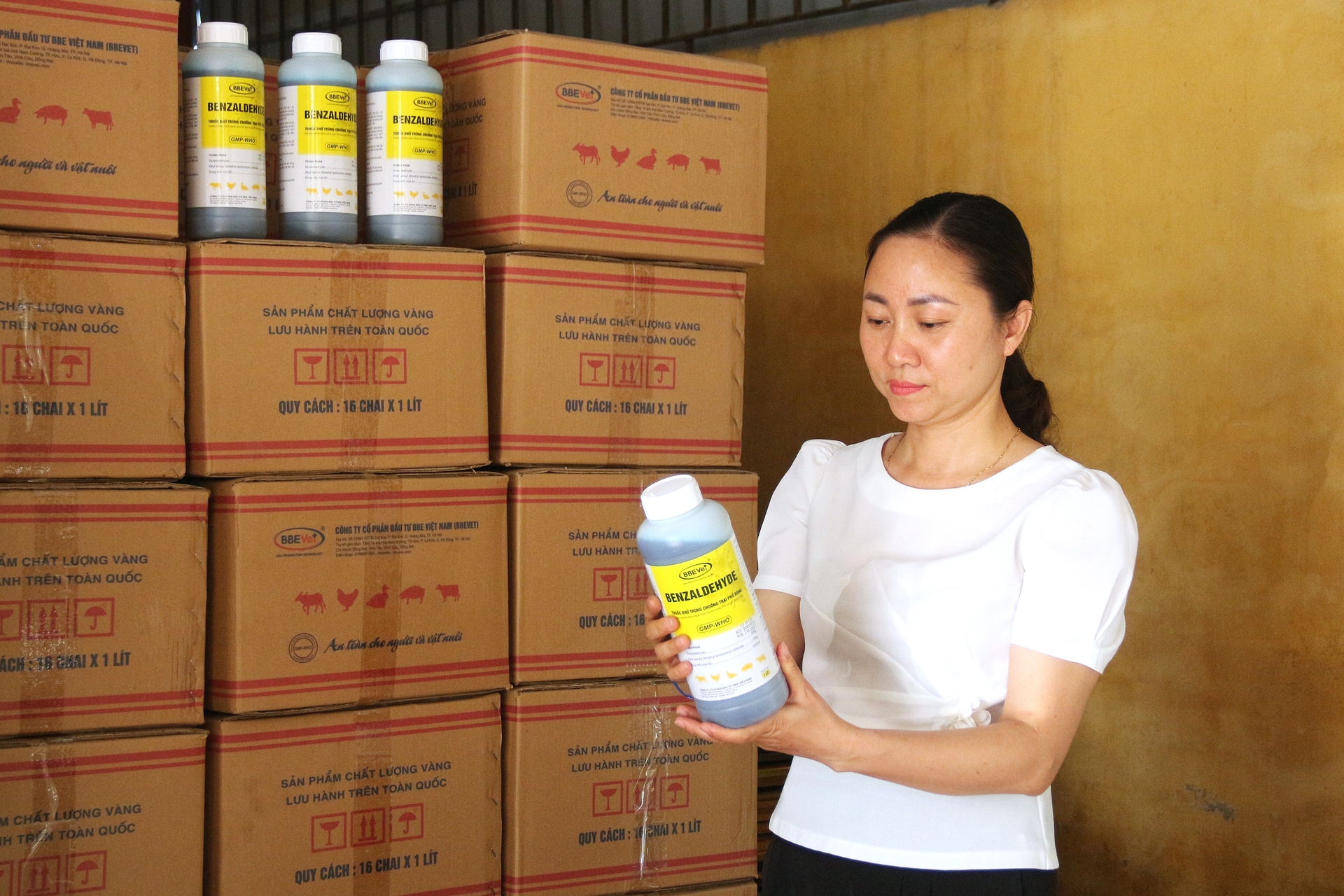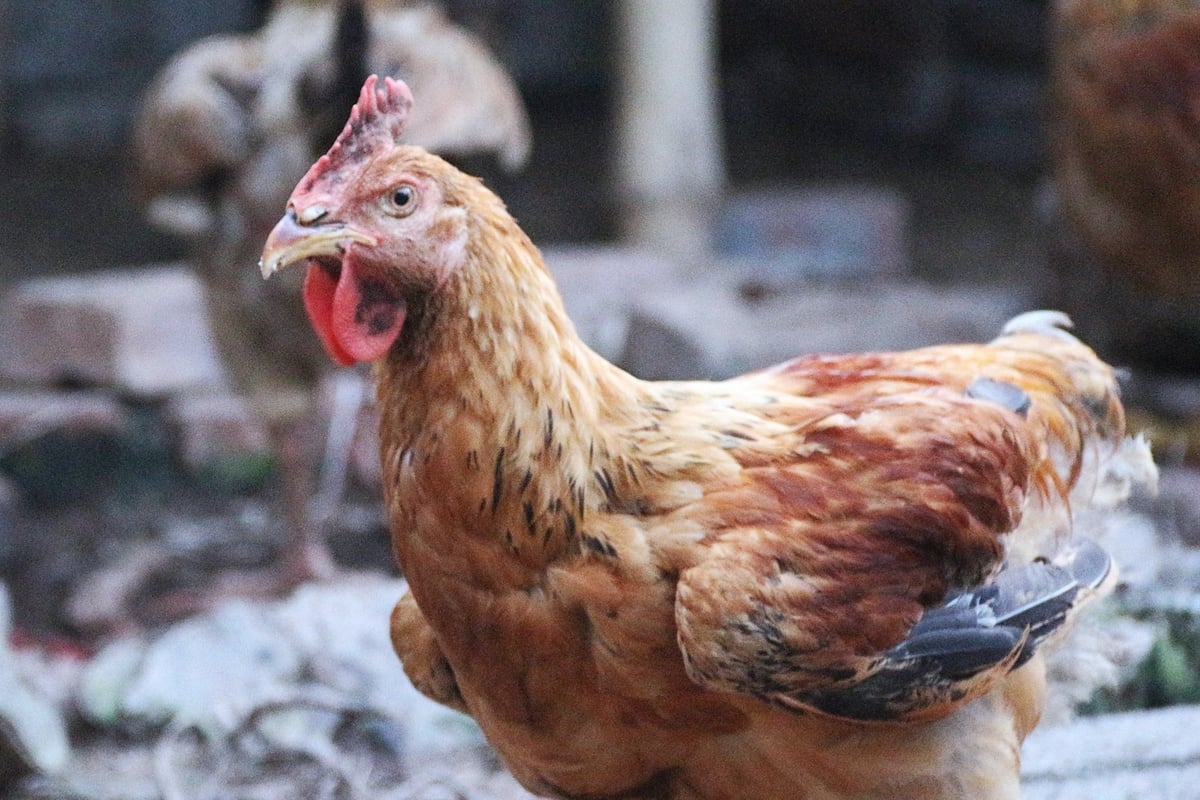November 30, 2025 | 11:49 GMT +7
November 30, 2025 | 11:49 GMT +7
Hotline: 0913.378.918
November 30, 2025 | 11:49 GMT +7
Hotline: 0913.378.918
The end of the year is always the most “bustling” time for the livestock industry in general and Hung Yen livestock farmers in particular. This is not only the acceleration period to meet consumer demand during holidays and Tet, but also the time that decides the results of a whole year of production.

For Pham Thi Lien, each chicken is an important asset. Photo: Pham Hieu.
It’s August, and Hung Yen enters the sweet longan season. The clusters of golden fruit hanging heavy on the branches are also a sign of a year of heavy rain because, according to folk experience, "a good longan season means high water". People in the region often rely on this rule to predict the weather and prepare for their livestock production plan.
This period is even more crucial to chicken farmers like Pham Thi Lien in Bac Ca village, Nguyen Trai commune, because just one mistake during the rainy season can cause a year's worth of effort to go down the drain. Nguyen Trai commune is not a place with a large poultry herd in the province, but that does not mean that people neglect veterinary safety and disease prevention.
“To be honest, I work on a small scale, but each chicken is an asset. Sometimes I have to sell the whole flock to save enough for my children’s education and buy things for the house. I have to stay vigilant and take great care of the chickens,” she says.

Chickens are very sensitive to humidity. Photo: Pham Hieu.
Sharing the secret to raising chickens, Lien believes that raising chickens not only requires capital but also patience and alertness. “If you want chickens to grow quickly, everything must be clean, from the floor to the drinking water source. You must change the water daily, choose easily digestible food, and mix in probiotics for a healthy intestine. I observe the farm every morning. If any chicken seems to walk slowly or eat little, I have to shift my focus right away. Let the healthy chicken exercise and go out to the yard to sunbathe. If chickens eat clean food, sleep well, and sunbathe early in the morning, they will grow very quickly,” says Lien.
However, she admits that no matter how much care she puts into the flock, the chickens are inherently very sensitive to humidity. Just a wet coop floor or feathers exposed to rain can make them susceptible to coughs, colds, and even diseases. At the end of the year, when it rains heavily and the humidity level is high, chickens often suffer from respiratory diseases, coccidiosis, diarrhea, etc.
When the rainy season arrives, she does her best to cover the coops and spread thick rice husks to keep the floor dry, and mix digestive enzymes and vitamins into the food to prevent disease early. As for other veterinary work, Lien says, “When people recommend vaccination, I cooperate immediately. Even if you have a few chickens, you still have to do it in full. Not only do the big flocks need vaccination. Sometimes one injection is more valuable than dozens of bags of feed, because it can keep the whole flock alive.”

From Nguyen Thi Hoa’s perspective, the rainy season is always considered a tough "test" for veterinary work. Photo: Pham Hieu.
Lien and many small-scale farmers in Hung Yen share the same thought of paying attention to the smallest details when it comes to livestock production. The scale is not large, the herd is not dense, but the people’s awareness of disease prevention is extremely serious.
From their viewpoint, chickens and pigs are not only a source of income but also a type of savings, a support to get through difficult days. It is this respect that has created the foundation for the province's livestock and veterinary sector to effectively implement support measures.
According to Nguyen Thi Hoa, Deputy Head of Hung Yen Sub-Department of Livestock Production and Animal Health, the province’s livestock and veterinary sector has closely coordinated with commune and village authorities to check, vaccinate, distribute vaccines, and instruct people on how to handle barns during prolonged floods.
Veterinary staff also go to households to share knowledge and remind people to pay attention to every detail, such as covering the barn door, digging drainage ditches, and drying rice husks to replace the bedding.

Every livestock holds great value for the livestock farmers in Hung Yen. Photo: Pham Hieu.
Hung Yen is a province with a long tradition of livestock farming, thanks to the advantageous position around the Red River Delta region, an abundance of agricultural by-products, and people with rich experience in livestock care. This also explains the concentration of pressure and expectations toward the farms. The end of the year is when market purchasing power skyrockets, so the need for safe, high-quality food becomes an urgent requirement. For farmers, each flock of chickens and pigs is not only the result of a season of labor but also the key to grasping the biggest opportunities.
Translated by Samuel Pham
![Hue aims for Net Zero: [1] Initial steps from green transportation](https://t.ex-cdn.com/nongnghiepmoitruong.vn/608w/files/huytd/2025/11/28/0853-anh-6-giao-thong-xanh-hue-094717_940-153724.jpg)
(VAN) For sustainable development, Hue City is implementing many solutions to promote green transportation, which is an important initial step on the journey to building a Net Zero Hue.

(VAN) Nghe An Province, one of the localities with the largest forest area in Vietnam, is set to gain significant benefits from the implementation of forest carbon credit payments.

(VAN) Circular agriculture helps Mekong Delta farmers cut greenhouse gas emissions while boosting incomes through efficient reuse of agricultural by-products.

(VAN) According to Mr. Vo Minh Thanh, Director of the Tay Ninh Department of Agriculture and Environment, Resolution 57 has created a new development pathway for the locality, shifting from traditional toward modern agriculture.
/2025/11/26/4909-2-154329_878.jpg)
(VAN) Pearl grouper farming in HDPE cages not only delivers economic efficiency but also contributes to protecting the environment, creating jobs, and promoting marine-based experiential tourism.

(VAN) The model of making a living under the forest canopy through the agroforestry system in Van Son commune, Bac Ninh province, is expected to generate an annual income of approximately VND 30 million/ha.

(VAN) Many enterprises in Can Tho are harnessing natural energy and reducing greenhouse gas emissions in their production processes, thereby contributing to the promotion of a sustainable green transition.